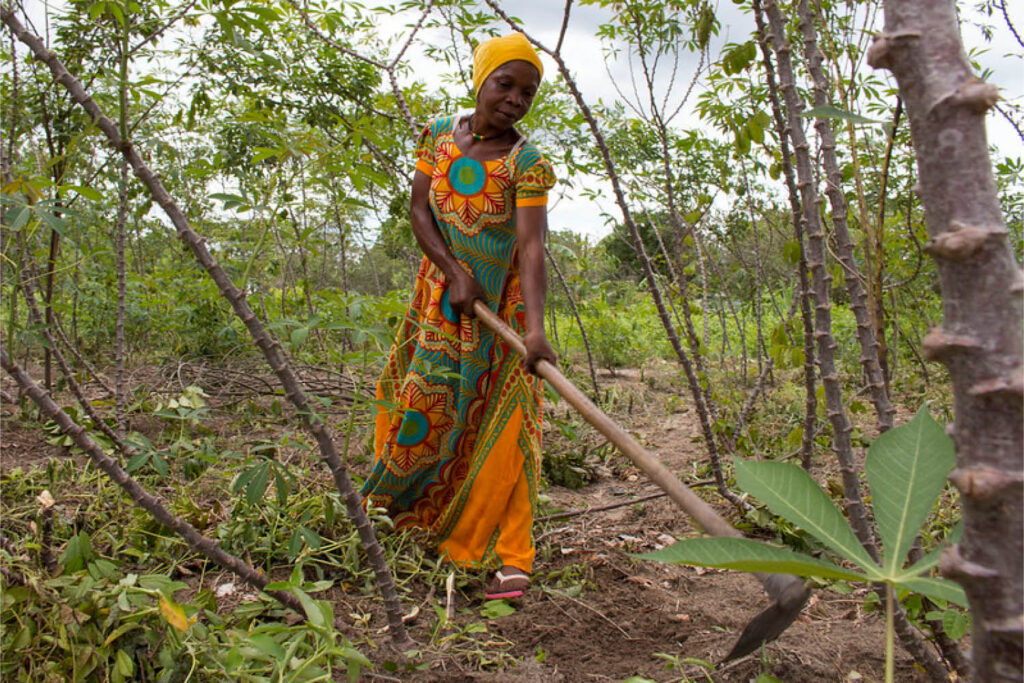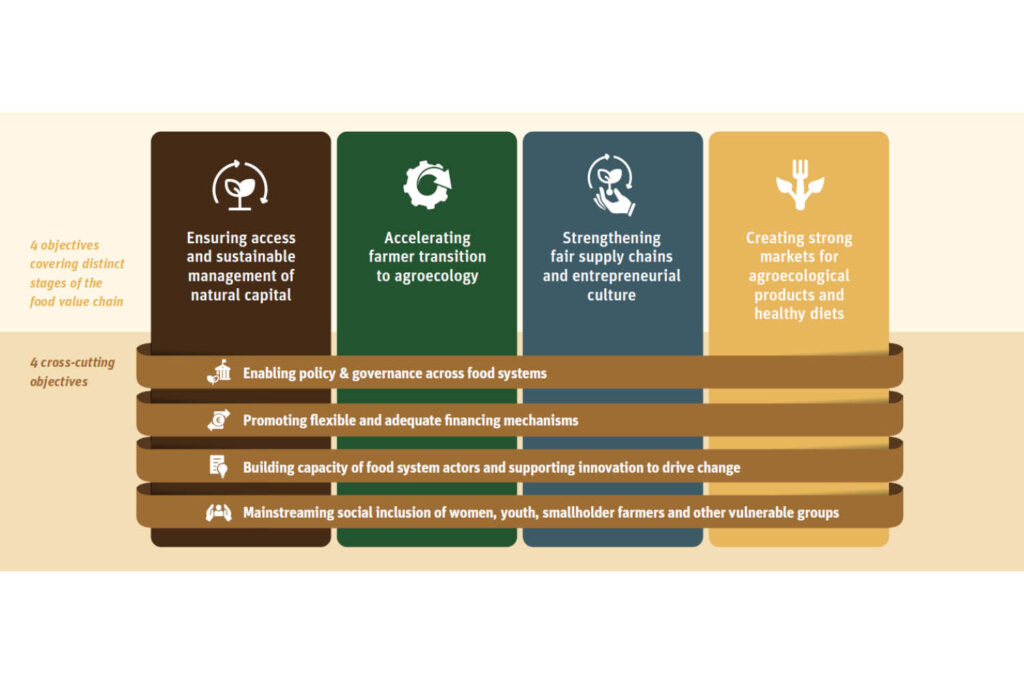National Agroecology Strategies (NAS) are being adopted in Eastern and Southern Africa to promote agroecological transitions nationally. The NAS processes and strategic documents have been characterised by solid participation, initiated by civil society organisations through bottom-up processes and drafted through dialogue with relevant food system actors.
In Zambia, the impacts of climate change have spurred collaboration between agroecology supporters and the national climate movement. Together, they advocate for government action against climate change and its repercussions by crafting a NAS tailored to Zambia’s needs.
NAS are comprehensive frameworks that enhance a country’s food system policies. NAS policies cover agriculture, natural resource management, education, research, markets, procurement, consumption, and food safety, providing specific policy interventions that accelerate food system transformation. NAS represent a shift from traditional, input-intensive farming approaches towards a balanced relationship between humans and the environment. These strategies are comprehensive frameworks that enhance food policy interventions and accelerate the transformation of food systems via agroecology.

